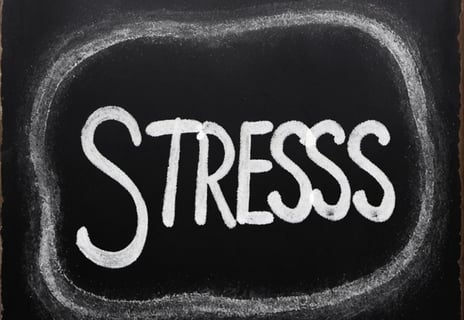10 Effective Stress Management Techniques for Busy Professionals
Professionals often lack time to learn comprehensive ways to fight stress. For those ho value their time we bring some methods to fight stress you can use straight away. We hope that you will get good results!
7/14/20245 min read


In today's fast-paced work environment, stress has become a common challenge for busy professionals.
The relentless pressure to meet deadlines, juggle multiple tasks, and maintain a work-life balance can significantly impact mental health.
However, managing stress effectively is crucial for maintaining productivity and overall well-being.
Here are ten practical stress management techniques tailored for professionals with busy schedules.
Prioritize and Organize Tasks: Enhance Productivity and Reduce Overwhelm
Categorize Tasks by Urgency and Importance
Effective stress management begins with prioritization.
Start your day by listing tasks in order of importance.
Different tools can help you categorize tasks based on urgency and importance, allowing you to focus on what truly matters.
This approach not only improves productivity but also reduces the overwhelming feeling of having too much on your plate.
Break Down Large Projects into Manageable Steps
By breaking down large projects into smaller, manageable tasks, you can systematically tackle each item
This reduces the feeling of being overwhelmed.
Regularly review and adjust your priorities to stay aligned with your goals and deadlines.
This practice helps maintain a clear sense of direction and reduces stress associated with complex projects.
Practice Mindfulness and Meditation: Calm Your Mind and Improve Focus
Incorporate Short Meditation Sessions into Your Routine
Incorporating mindfulness and meditation into your daily routine can significantly reduce stress levels.
Even a few minutes of deep breathing exercises or guided meditation can calm your mind and improve focus.
Quick meditation sessions that fit into any schedule, making it easier for busy professionals to practice mindfulness.


Use Mindfulness to Become Aware of Stress Triggers
Mindfulness involves paying attention to the present moment without judgment, which can help you become more aware of your stress triggers and responses.
Over time, consistent mindfulness practice can enhance emotional regulation and resilience to stress.
Implementing mindfulness techniques throughout your day, such as mindful eating or walking, can further integrate these benefits into your routine.
Engage in Regular Physical Activity: Boost Your Mood with Exercise
Find an Exercise Routine That Fits Your Schedule
Exercise is a powerful stress reliever.
Aim for at least 30 minutes of physical activity most days of the week.
This could be a brisk walk during lunch breaks, a morning jog, or a quick workout session at home.
Physical activity releases endorphins, which naturally elevate your mood and reduce stress.
Choose Activities You Enjoy
Regular exercise improves sleep quality, boosts energy levels, and enhances cognitive function.
Find an activity you enjoy, whether it's yoga, cycling, or dancing, to make it a sustainable part of your routine.
Consistency is key, so choose exercises that you look forward to and can easily incorporate into your daily schedule.
Maintain Healthy Eating Habits: Stabilize Your Mood with Balanced Nutrition
Plan and Prepare Meals in Advance
Nutrition plays a vital role in stress management.
Eating a balanced diet rich in fruits, vegetables, lean proteins, and whole grains can help stabilize your mood.
Planning and preparing meals in advance ensures you have healthy options readily available, even on your busiest days.
Opt for Snacks That Provide Sustained Energy
Avoid excessive caffeine and sugar, which can lead to energy crashes and increased stress levels.
Instead, opt for snacks like nuts, yogurt, and fruits that provide sustained energy.
Staying hydrated is also essential, as even mild dehydration can affect your concentration and mood.
Set Boundaries: Protect Your Work-Life Balance
Communicate Availability and Limits
Learning to say no is essential for managing stress.
Set clear boundaries between work and personal life.
Avoid checking work emails during off-hours and communicate your availability to colleagues.
This separation helps in maintaining a healthy work-life balance and prevents burnout.
Delegate Tasks and Recognize Your Limits
Establishing boundaries also means delegating tasks when possible and recognizing your limits.
It is important to ser realistic expectations with yourself and others,
Thus, you can reduce the pressure to be constantly available and allow yourself time to recharge.
Get Adequate Sleep: Enhance Your Resilience to Stress
Create a Relaxing Bedtime Routine
Quality sleep is crucial for stress management.
Aim for 7-9 hours of sleep per night.
Create a relaxing bedtime routine by avoiding screens before bed, keeping your bedroom cool and dark.
Practice relaxation techniques like reading or listening to calming music.
Address Sleep Issues with Professional Help
Proper sleep enhances your ability to handle stress and improves overall health.
Consistent sleep patterns regulate your body's internal clock, making it easier to fall asleep and wake up naturally.
Addressing sleep issues, such as insomnia, with a healthcare professional can also be beneficial.
Take Short Breaks: Rejuvenate Your Mind and Body
Implement the Pomodoro Technique
Taking short breaks throughout the day can rejuvenate your mind and body.
Implement techniques like the Pomodoro Technique, which involves working for 25 minutes and then taking a 5-minute break.
These breaks help in maintaining focus and reducing stress by giving your mind a chance to relax.
Use Break Time for Physical or Mindful Activities
Use break time to stretch, take a walk, or engage in a brief mindfulness exercise.
Regular breaks prevent burnout and maintain steady productivity throughout the day,
Avoid experiencing peaks and troughs in energy and concentration
Practice Time Management: Organize Your Day for Efficiency
Utilize Calendars and Planners
Efficient time management can significantly reduce stress.
Use tools like calendars, planners, and to-do lists to organize your tasks and deadlines.
Allocate specific time blocks for different activities and stick to your schedule.
Set Realistic Deadlines and Review Progress
By managing your time effectively, you can avoid last-minute rushes and reduce stress.
Prioritize tasks that align with your long-term goals and set realistic deadlines to avoid overcommitting.
Regularly review your progress and adjust your plans as needed to stay on track.
Connect with Others: Build a Support System
Engage in Social Activities
Social support is crucial for managing stress.
Take time to connect with family, friends, and colleagues.
Sharing your feelings and experiences with others can provide emotional support and help you gain different perspectives.
Join Professional Networks or Support Groups
Joining professional networks or support groups can also offer valuable connections and stress-relief opportunities.
Building strong relationships creates a sense of belonging and reduces feelings of isolation.
Engaging in social activities, both in and out of the workplace, can enhance your overall well-being and provide a necessary break from work-related stress.
Seek Professional Help: Access Resources for Mental Health Support
Utilize Employee Assistance Programs (EAPs)
If stress becomes overwhelming, don't hesitate to seek professional help.
Therapists and counselors can provide coping strategies and support tailored to your needs.
Many organizations offer Employee Assistance Programs (EAPs) that provide confidential counseling services.
Develop Personalized Stress Management Strategies
Seeking help is a proactive step towards managing stress and improving mental health.
Professional support can also help you develop personalized stress management techniques and address any underlying issues contributing to your stress.
Conclusion: Embrace Continuous Self-Care for Lasting Well-Being
Implementing practical stress management techniques can greatly enhance productivity and overall well-being for busy professionals.
However, it's crucial to recognize that managing stress is an ongoing process requiring consistent commitment and self-care.
Regularly assessing your stress levels allows you to stay aware of your mental and emotional state, helping you identify stress triggers and evaluate the effectiveness of your current strategies.
Flexibility in your approach is essential, as the methods that work today might not be as effective tomorrow.
Incorporate stress management techniques into your daily routine, such as mindfulness exercises, physical activity, and time management practices.
Prioritizing both mental and physical health through balanced nutrition, adequate sleep, and regular exercise is key to comprehensive well-being.
Enhancing your mental health not only boosts professional performance but also enriches your personal life, fostering long-term happiness and fulfillment.
Make a firm commitment to a lifestyle that supports your overall well-being, setting boundaries, seeking support when needed, and dedicating time for self-care activities.
By embracing these practices and making continuous self-care a priority, you can thrive both at work and in your personal life.
